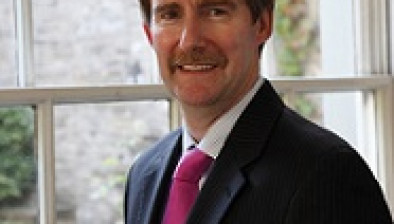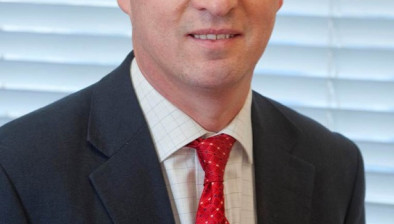Lawyer argues Brexit leaves extradition subject in legal limbo
A lawyer for a construction company director, wanted in the UK over his role in a £5 million (about €5.8 million) tax fraud, has argued that Brexit leaves his client in a “legal limbo”.
Thomas Joseph O’Connor, 49, was sentenced in his absence to four-and-a-half years in prison for defrauding the British revenue more than a decade ago in January 2007.
After being convicted following a six-week trial at Blackfriars Crown Court, Mr O’Connor, who was on bail, did not attend court for the sentencing hearing. He had returned to Ireland but was arrested on an extradition warrant in 2009.
After the High Court ordered his extradition, he appealed and the Court of Appeal dismissed his appeal in October 2015. He lost a further appeal to the Supreme Court in March of this year.
In April, Mr O’Connor’s lawyers applied for a postponement of his surrender to the UK on humanitarian grounds. The court heard his brother was terminally ill and undergoing palliative care.
Ms Justice Aileen Donnelly granted the application, saying there was a “very particular closeness between Mr O’Connor and his brother”.
At a further hearing yesterday, the High Court heard that Mr O’Connor was seeking to re-open the extradition proceedings because of Brexit.
Mr O’Connor’s barrister, Dr Michael Forde SC, said his client was entitled to have a complete re-hearing or “a second shot” because of the Brexit decision.
His counsel told the court that if Mr O’Connor is surrendered, he is likely to be imprisoned for four-and-a half years and as the law presently stands, the UK will have left the EU on 29 March 2019.
“There is no legal certainty that the present state of affairs will continue after 2019,” he said.
Dr Forde said “no provision” had been adopted in the UK to protect Mr O’Connor’s rights after this date.
He said it was “unfair” to expect his client who is on legal aid and with limited resources to say what the present view of the UK government would be after 29 March 2019. “He just simply cannot tell and that leaves Mr O’Connor in a legal limbo,” he said.
Dr Forde said that Article 50, which set out the process by which member states may withdraw from the European Union, was a “definitive decision” and it may not be revisited. He said it was a matter for European law to resolve this issue and not Irish law.
Counsel for the Minister for Justice and Equality, Robert Barron SC, said that Brexit was the only issue that could be re-opened in this case and the outcome of it was “unknown”. He said it was “speculation” as to what will happen to the Extradition Act in the UK and what arrangements would be put in place upon the UK leaving the EU. “Brexit will not alter domestic legislation,” he said.
Mr Barron said there was no evidence that Mr O’Connor would lose any of his fundamental rights before the court after March 29, 2019 nor that he would be re-extradited elsewhere. “It is all premature,” he said.
The barrister said that the UK was bound to its commitments on EU law at present. “What is being suggested here is that the UK will not respect its obligations but there is no evidence of this,” he said.
The hearing continues tomorrow before Ms Justice Donnelly and Mr O’Connor was remanded on continuing bail.
Alison O’Riordan, Ireland International News Agency Ltd.







